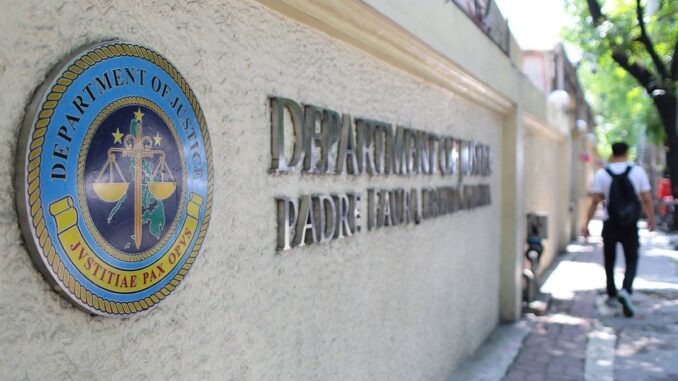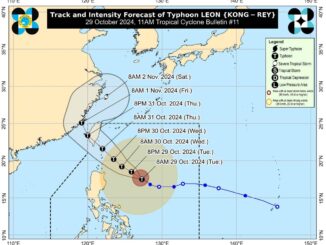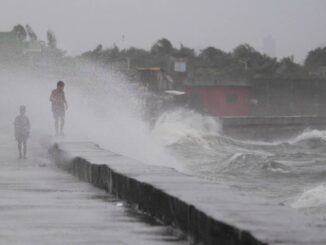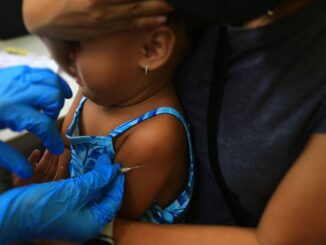
THE Department of Justice (DoJ) announced on Tuesday plans to prosecute Filipinos who helped a French pedophile livestream the rape of hundreds of preteen girls in the Philippines.
Bouhalem Bouchiba, 59, a graphic artist who worked at the Pixar and Disney animation studios, was found guilty of directing the online abuse of preteen girls from his residence in France and sentenced to 25 years in jail.
Bouchiba was accused of paying women in the Philippines between 2012 and 2021 to rape and sexually assault girls ages between 5 and 10 in front of a camera while he watched via livestream and issued instructions.
He is charged with complicity in the repeated rape and sexual assault of minors.
In addition, he is accused of complicity in repeated human trafficking of minors, possession of child pornography images, and of regularly consulting child pornography internet sites.
On Tuesday, the DoJ said it was collaborating closely with the National Coordination Center Against Online Sexual Abuse and Exploitation of Children (Osaec) and the Women and Children Protection Center of the Philippine National Police (PNP) to fortify investigations and legal proceedings against those who facilitated Bouchiba’s crimes.
Police became interested in Bouchiba when Europol, the European Union’s law enforcement agency, sent out an alert about suspicious money transfers to the Philippines.
It noticed the flows during a wider probe into the livestreaming of sexual abuse of children for money paid by Western clients, with the abuse usually taking place in southern hemisphere countries.
During questioning, investigators said, he admitted to being a consumer of sex shows filmed by webcam and involving Filipina women, as well as visiting child porn sites.
He also told investigators that he had first made contact with the women using legal adult-only sex sites.
But then he would move the conversation to secure messaging sites, where he would offer to pay for sexually violent acts to be performed on children, who were mostly between 5 and 10 years old, although one is believed to have been 3 or under.
Each show cost between 50 and 100 euros (P3,172 and P6,345)
The accused himself has said that he was in contact with 24 women and paid some 10,000 euros (P634,510) for 200 sessions.
In a statement, Justice Secretary Jesus Crispin Remulla emphasized the government’s commitment to a “whole-of-nation” approach in combating human trafficking and child exploitation.
He noted that collaboration among various entities — ranging from nongovernmental organizations to international law enforcement agencies, and local telecommunications companies — is crucial in enhancing detection methods for financial flows related to child exploitation.
“As a government, we are sending a powerful message that child exploitation will not be tolerated, be it online or offline,” Remulla said.
He said the DoJ is also taking proactive steps to enhance communication and information-sharing among law enforcement agencies across borders. This initiative aims to ensure swift and efficient responses to child exploitation cases, ultimately working toward closing the gaps that allow these crimes to flourish.
In light of the case, the DoJ is exploring strengthened collaborations with money services businesses and social media platforms.
According to Remulla, these partnerships are critical in detecting illicit financial transactions and preventing access to platforms that promote harmful content.
He urged anyone with information regarding potential cases of child exploitation to report them immediately, as proactive public involvement is vital in the fight against these crimes.
Remulla pointed out that the gravity of Bouchiba’s actions and the convictions of those who facilitate similar exploitations serve as a crucial reminder of the ongoing battle against child abuse in an increasingly digital world.
The Philippines amended the Anti-Trafficking in Persons Act and expanded the forms of exploitation included within the definition of trafficking in persons to include the production, creation, or distribution of child sexual abuse and exploitation materials.
As amended, the Anti-Trafficking in Persons Act criminalized sex trafficking and labor trafficking and prescribed penalties of up to 20 years’ imprisonment and fines of between P1 million and P2 million.
The amendments also expanded the list of acts by private sector entities that constitute facilitation of trafficking and prescribed additional financial penalties for such crimes.





Be the first to comment